Yajnaseni Chakraborty/ Rediff.com in Kolkata
The National Award-winning director gave us some fine films before he succumbed to liver cancer on June 2.
National Award-winning director Anjan Das began his film career in the mid-1970s with two documentaries, The Art of Anant Malakar and Tripura.
But it wasn’t until the low-budget, underrated Saanjhbatir Roopkothara (2002) that he attracted critical attention.
Here, in chronological order, is a look at five of his milestone films.
Saanjhbatir Roopkothara (2002)
This haunting, evocative film was the debut release of Planman Motion Pictures, and tells the story of a young girl called Saanjhbati (Indrani Haldar) and her dreams.
Like all of Das’s films, this one was technically and visually brilliant, and both Indrani Haldar, as a solitary, passionate young woman inspired by Pablo Neruda, and Soumitra Chatterjee as her artist father, did an outstanding job.
With no structured narrative to hold it in place, the film relied heavily on surreal visuals, metaphor, and iconic writer Joy Goswami’s lyrical, poetic prose, mirroring the luminous colours on a painter’s canvas.
.
Iti Srikanto (2004)
Image: Soha Ali Khan in Iti SrikantoYajnaseni Chakraborty/ Rediff.com in Kolkata
Based on the legendary novel by Sarat Chandra Chattopadhyay, Iti Srikanto was typical of Das’s tendency to draw upon great works of literature for his films.
The film was a milestone for several reasons -- it marked Soha Ali Khan’s big-screen debut, and was Adil Hussain’s first Bengali film.
Das and his cast had a tough act to follow, given that Bengal’s matinee idols Uttam Kumar and Suchitra Sen had in the past played Srikanto and Kamal Lata, the characters which Adil and Soha were playing.
However, critics and viewers alike were pleasantly surprised by the glowing, delicate, gentle-paced film that Das eventually created, winning him a National Award for Best Audiography.
Faltu (2006)
Image: Movie poster of FaltuYajnaseni Chakraborty/ Rediff.com in Kolkata
Once again, Das drew upon Bengal’s rich literary tradition. This time, his inspiration was Syed Mustafa Siraj’s story Ranir Ghater Brittanto.
Released in 2006, the film won the 2007 National Award for Best Film on Family Welfare.
It was produced by Planman Motion Pictures. F.A.L.T.U. featured Soumitra Chatterjee, Indrani Halder, Yash Pandit and Manjari Fadnis.
Critics were almost unanimous in their praise, calling it a rich audio-visual experience, and a perfectly crafted treatment of a difficult subject.
Set in Ranirghat in West Bengal’s Murshidabad district in the early 1950s, the film is the story of a 20-year-old orphan called Faltu (meaning 'useless’) and his search for his biological father.
The narrative also incorporates the life of a village and its people, and several dramatic events.
Jara Brishtite Bhijechhilo (2007)
Image: Indrani Halder in Jara Brishtite BhijechhiloYajnaseni Chakraborty/ Rediff.com in Kolkata
Jara Brishtite Bhijechhilo (Those who were drenched by rain) was once again a film based on Joy Goswami’s story of the same name, starring Indrani Halder, Sudip Mukherjee and Aloknanda Ray.
The film won Indrani the Best Actress award at the Madrid International Film Festival.
She played a woman, who walks out of her marriage after being subjected to repeated marital rape and starts living life on her own terms with her poet lover.
The film marked the third installment of what Das called his ‘fantasy-reality’ trilogy, after Saanjhbatir Roopkothara and Iti Srikanto.
Banshiwala (2010)
Image: The Banshiwala posterYajnaseni Chakraborty/ Rediff.com in Kolkata
This is the story of a young man called Mridul, who returns to his ancestral home from abroad after a decade. His life in London hasn’t been easy, and his sole source of income was playing the flute (or banshi in Bengali) in the houses of the rich.
Now, he hopes to sell his ancestral home and go back to London, pay off his debts, and start a business.
But once he is back home, Mridul is haunted by memories of his childhood and growing up years in the sprawling, deserted mansion, and he begins dreaming of a life with his childhood sweetheart Neepa, who used to call him Banshiwala.
The journey back in time also helps him face a crucial truth that changes his life.
Starring Soumitra Chatterjee, Shayan Munshi, and Indrani Haldar, the film was particularly acclaimed for its free-flowing style and excellent music.

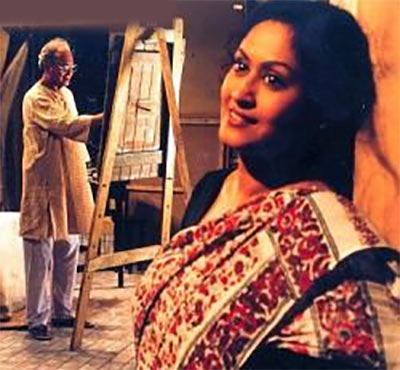
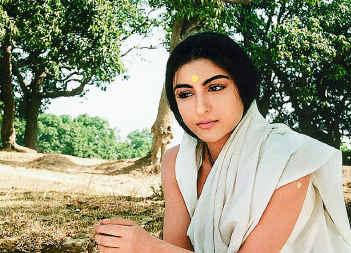
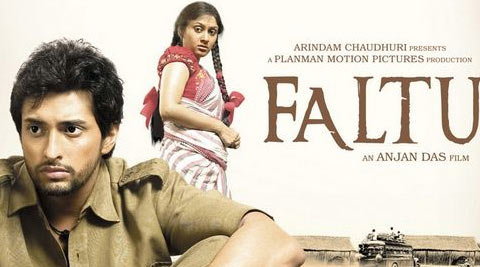
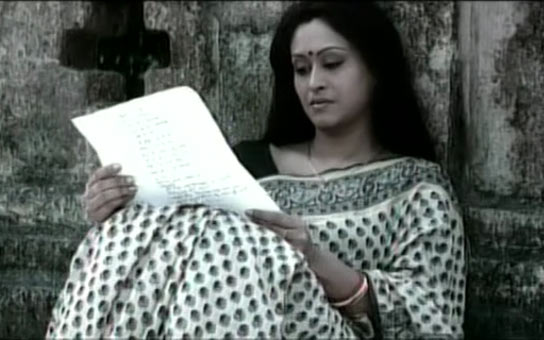
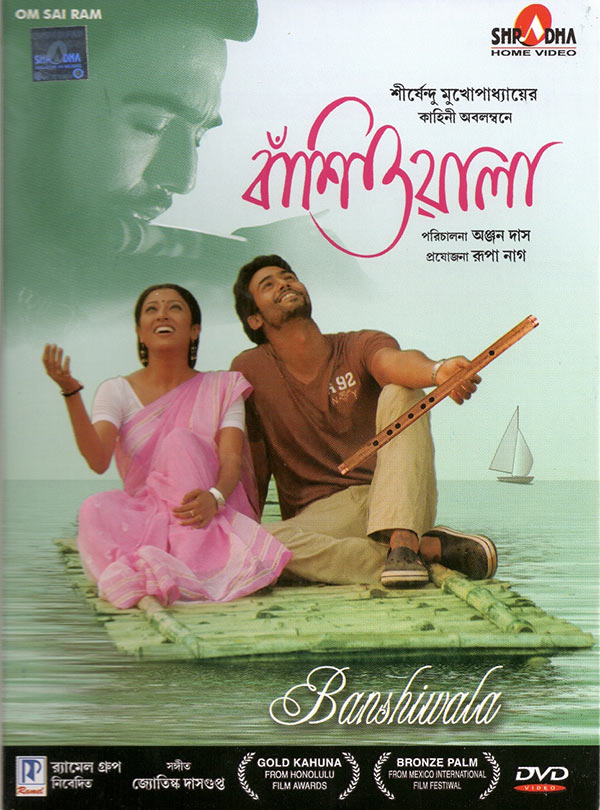
Comment
article